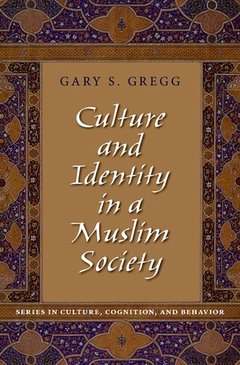Description
Culture and Identity in a Muslim Society
Culture, Cognition, and Behavior Series
Author: Gregg Gary S.
Language: English
Subjects for Culture and Identity in a Muslim Society:
Publication date: 03-2007
384 p. · 23.5x16.4 cm · Paperback
384 p. · 23.5x16.4 cm · Paperback
Description
/li>Contents
/li>Comment
/li>
In the last fifteen years, psychologists have rediscovered culture and its influence on emotion, thought, and self. Research appeared to produce a consensus that the world's cultures can be ranked on dimensions of individualist vs. collectivist, with Western cultures falling at the individualist end, and non-Western cultures at the collectivist end. Studies seemed to further indicate that individualist cultures give rise to "independent" selves so that Westerners think and act autonomously while collectivist cultures foster "interdependent" selves with permeable boundaries that embed non-Westerners in social relationships so that they think and act relationally. Culture and Identity presents an alternative to the individualist vs. collectivist approach to identity. Unlike most psychological and anthropological studies of culture and self, it directly studies individuals, using study of lives-style interviews with young adults living in villages and small towns in southern Morocco. It analyses the life-narratives of two men and two women, building a theory of culture and identity that differs from prevailing psychological and anthropological models in important respects. In contrast to modernist theories of identity as unified, the life-narratives show individuals to articulate a small set of shifting identities. But in contrast to post-modern theories that claim people have a kaleidoscopic multiplicity of fluid identities, the narratives show that the identities are integrated by repeated use of culturally-specific self-symbols, metaphors, and story-plots. Perhaps most importantly, the life-narratives show these young Moroccans self-representations to be pervasively shaped by the volatile cultural struggle between Western-style modernity and authentic Muslim tradition. Offering a new approach to the study of identity, the volume will be of interest to cross-cultural psychologists, anthropologists, and scholars specialising in the study of lives.
Introduction. 1. Theory. 2. A Cultural Geography. 3. Mohammed. 4. Hussein. 5. Rachida. 6. Khadija. 7. Conclusions.
a creative contribution to the existing researches on Muslim societies
© 2024 LAVOISIER S.A.S.




